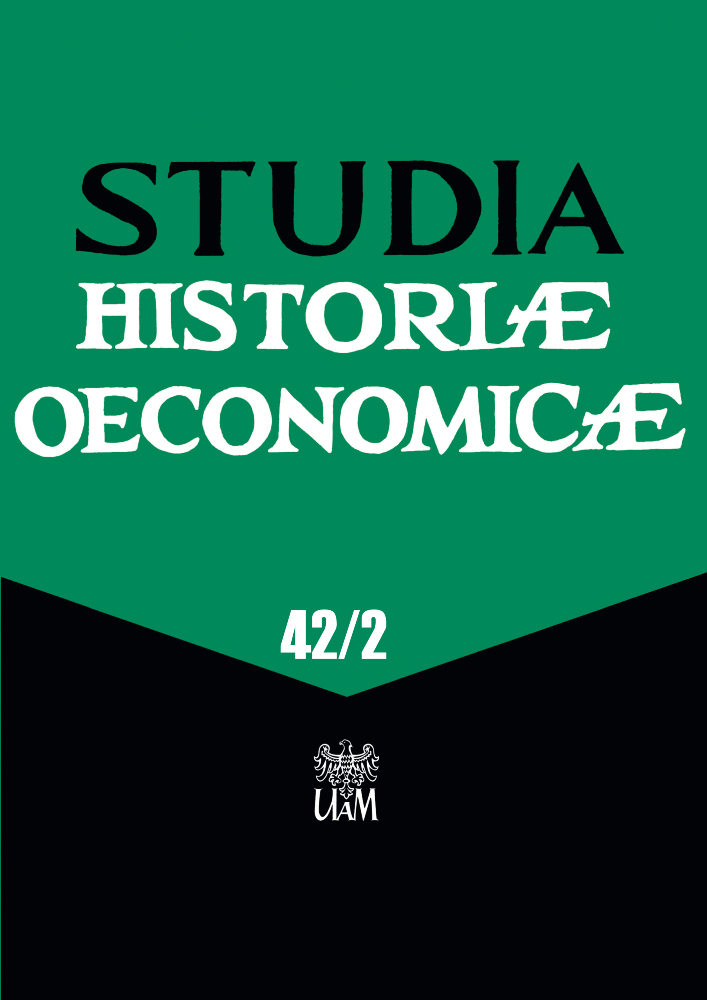Unfulfilled Dreams? The Financial Situation
of Workers in Paris and the Department of
Loir-et-Cher between 1789 and 1795
Unfulfilled Dreams? The Financial Situation
of Workers in Paris and the Department of
Loir-et-Cher between 1789 and 1795
Author(s): Krzysztof DerejskiSubject(s): Economic history, Social history
Published by: Uniwersytet im. Adama Mickiewicza w Poznaniu
Keywords: workers; wages and prices; inflation; French Revolution; Cahiers de doléances (the ledgers of complaints); inclusive economic institutions;
Summary/Abstract: The convening of the Estates General in France in 1789 raised high hopes in French society for change. The economic demands written down in the ledgers of com- plaints, such as the abolition of the guild system, the unification of taxes and their more equitable distribution, the abolition of customs duties and fees within the kingdom, can be categorized as inclusive economic institutions. Their introduction in France dur- ing the Revolution was expected to translate into an improvement in the financial con- ditions of the population. The purpose of this article is to present the changing finan- cial situation of workers in Paris and the department of Loir-et-Cher between 1789 and 1795 in the context of the aforementioned institutions. Data from a survey of prices and wages conducted at the behest of the Committee of Public Safety, Paris police reports of 1795 and depreciation tables were used to show the change in the financial position of working families during the French Revolution. Demands from the ledgers of com- plaints against the Estates General of 1789 were used to determine the title workers’ “dreams.” Assessing the change in the financial situation of workers required calcula- tions that took into account, among other things, the size of the average working fam- ily’s demand for foodstuffs or the change in France regarding the number of working days per year after the elimination of the old holidays and the introduction of the re- publican calendar. During the period under review, the financial situation of workers in the Loir-et-Cher department worsened due to high inflation – turning at times into hyperinflation – despite the implementation of most of the demands of the ledgers of complaints by the revolutionary authorities. In the case of Paris, the assessment is not so clear-cut. Thanks to the rationing of bread and meat in the capital, and their sale at a discounted price by the authorities, the living conditions of working families in 1795 were better or comparable to those at the beginning of the revolution. The article sheds new light on the changing financial situation of workers in Paris and the department of Loir-et-Cher in the context of the implementation of workers’ demands recorded dur- ing the revolution in the ledgers of complaints to the Estates General of 1789, thus fill- ing a gap in historiography.
Journal: Studia Historiae Oeconomicae
- Issue Year: 42/2024
- Issue No: 2
- Page Range: 11-52
- Page Count: 42
- Language: English

